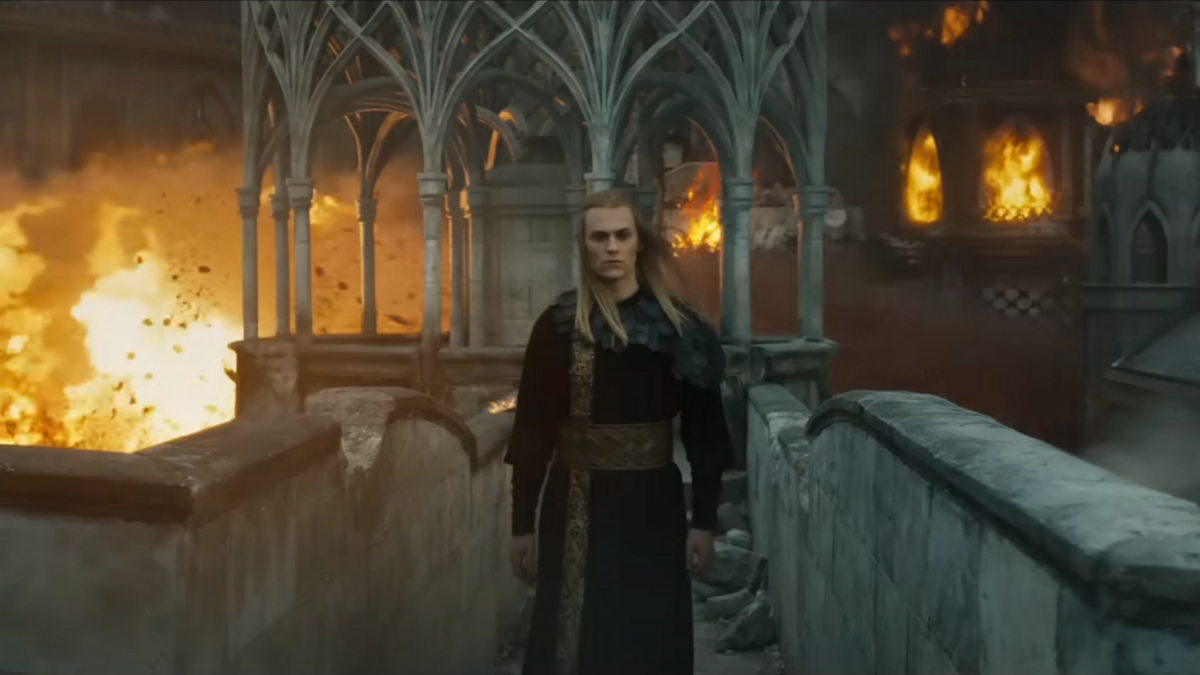
There’s a simple subtext observable in any contemporary art form: Authoritative values are considered “unnatural” and “evil,” and the opposite are considered “natural” and “good.” Hierarchy, order, discipline, fortitude, stoicism, subtlety, beauty, deference to authority, grandeur, and civilization are all conservative values. Rebellion, profanity, egalitarianism, sacrilege, and tribalism are not.
As art usually reflects the contemporary political mores of the well-to-do and connected in society, this subtext becomes a pattern. So the British empire is bad, while pirates are good; the Galactic empire is bad, while rebels are good; the Lannisters bad, while the Freefolk are good; and so on.
When there is a rallying cry to “freedom” against “oppression,” it’s easy to predict which side will be glorified in art, just as it is similarly simple to identify the eventual heroes and villains. Needless to say, this sort of thrust often leads to ahistorical results, to the point that it all becomes extremely conventional, simplistic, and often boring after a while. Season one of Netflix’s “Barbarians,” a show about the Roman attempt to pacify Germania culminating in the Battle of the Teutoburg Forest, is no different.
The series, now renewed for a second season, tells the story of Arminius, the Germanic chieftain known for his militarism and hatred towards Rome. Adopted by Publius Quinctilius Varus from his native Cherusci tribe, Arminius was brought up in civilized Rome, then ultimately betrayed the empire that gave him social standing and education. In modern times, Arminius saw a brief renaissance as a hero, worshipped as a role model in Germania between Bismarck to the end of Adolf Hitler’s short-lived Third Reich.
As one of my professors once said, there’s nothing in the modern world that has not already happened in Rome. In this case, an empire was humiliated due to one individual with envy and vengeance in his heart and the other individual being naïve and idealistic. Arminius tricked Varus into stretching the Roman Army’s lines thin, out to 15 miles. The Germans then ambushed three Roman legions in the forest and annihilated them.
Surviving Roman officers were sacrificed and even cannibalized. The defeat was so traumatic that it drove the otherwise stoic emperor Augustus delusional. He cried for Varus to return his “stolen“ legions. As per the custom of ancient nobility, Varus committed suicide on a battlefield, preferring death than living with dishonor.
The battle is a defining event in Roman history. Although Rome wasn’t yet at the peak of its power, it was ascending, and well on the way to being one of the greatest empires in human history. Rome was charting maps of unknown regions, translating Greek astronomy and planetary movements, exploring deep philosophy, and using advanced mathematics to build architecture and roads that exist to this day.
Rome was writing laws and cementing principles that would form the foundation of Western civilization and be one of the foremost influences on the Federalist Papers, which, in turn, would go on to form America — the new Rome — building a creed that transcended bloodlines and was bound by values.
On the other side, the barbarians were reading runes and sacrificing humans to bring rain. Mediterranean ladies were the most sophisticated, composed, and stoic in the civilized world, taught that civilization carries the burden of keeping emotions and passions in check. Barbarians were, well, barbarians: incestuous, uncouth, living amidst squalor. Yet Rome was defeated, albeit momentarily, due to the timely combination of two of mankind’s most destructive instincts: treason and hubris.
The Roman consul Varus was so thoroughly confident about both his armed might and his faith and trust in his adopted Germanic son Arminius that he got his three legions obliterated.
The series is overall true to the main story. There are a few minor issues. The series subtitles and voice dubbing were awfully bad, especially in the American versions. Roman swords were not as long as the one Arminius carried before he was knighted. Roman soldiers marched light and therefore did not all carry standards and banners. Most of the accessories were carried by camp-followers, beasts of burden, s and slaves.
There is no historical evidence of Arminius being gentle or thoughtful, or Thusnelda having affairs. Thusnelda didn’t marry Arminius before the war. Arminius doesn’t look like the historic portraits and archived text.
The Italian casting of the series, however, is extraordinarily good, with Varus being played by the brilliant and classy Gaetano Aronica. The Germanic cast, on the other hand, leaves much to be desired, with most of its members resembling the sort of faux-tough, pierced, and half skull-shaved intoxicated twenty-something types one can spot during Tomorrowland or Coachella. Although, in a way, this is coincidentally spot on, given that during the last 70 years our current society has undertaken a slow march from civilization to barbarism.
The barbarians are portrayed as idyllic tattooed and pierced Wiccan flower children who only want freedom, farming, and fornication. In reality, they were anything but. Conversely, the Romans are portrayed like every empire in history: uptight, superior, and snobbish. They were also sophisticated, a trivial detail rarely glorified in a series that questions the very basis of what is considered “civilized.”
Interestingly, there’s a geopolitical angle to this series. As Europe and to some extent America gets increasingly paganized, the old Germanic barbarism and witchcraft are making somewhat of a comeback. Families and patrimony are slowly being replaced by a more communal and fluid understanding of society. Sophistication is looked down on as class snobbery. Many well-to-do in the Western world now prefer to dress down and be profane.
Throughout history, civilization has been an upward movement, and the working class aspire to be refined. In modern times, however, it is in reverse. In the vast majority of college campuses across the West, Roman values are being torn down and aided by vandals within. Netflix’s “Barbarians,” like most current art, reflects this worldview.
It’s a tragedy, as any civilization also requires some form of imperial grandeur above salt-of-the-earth proto-humanism, and the very same values that modern society considers evil and oppressive, including hierarchy, sophistication, stoicism, and order, make a civilization great for posterity.
Rome is remembered still and shapes us to this day, as do many other high-cultured and civilized empires — the British, Persians, and Mughals, to name a few. So yes, one can enjoy “Barbarians,” especially its technical achievements and cinematic beauty — as long as one isn’t too nitpicky, or a historian haunted by troubling parallels.









